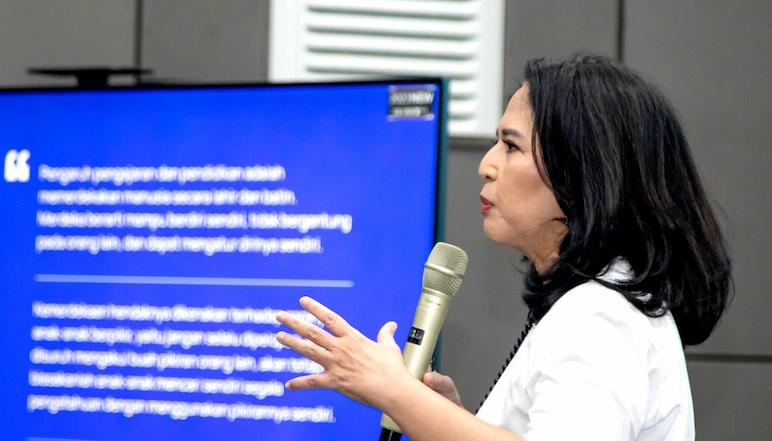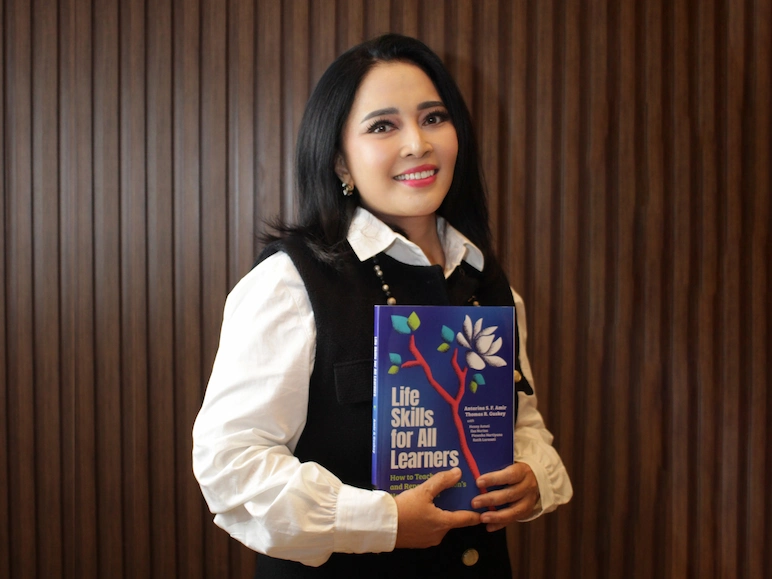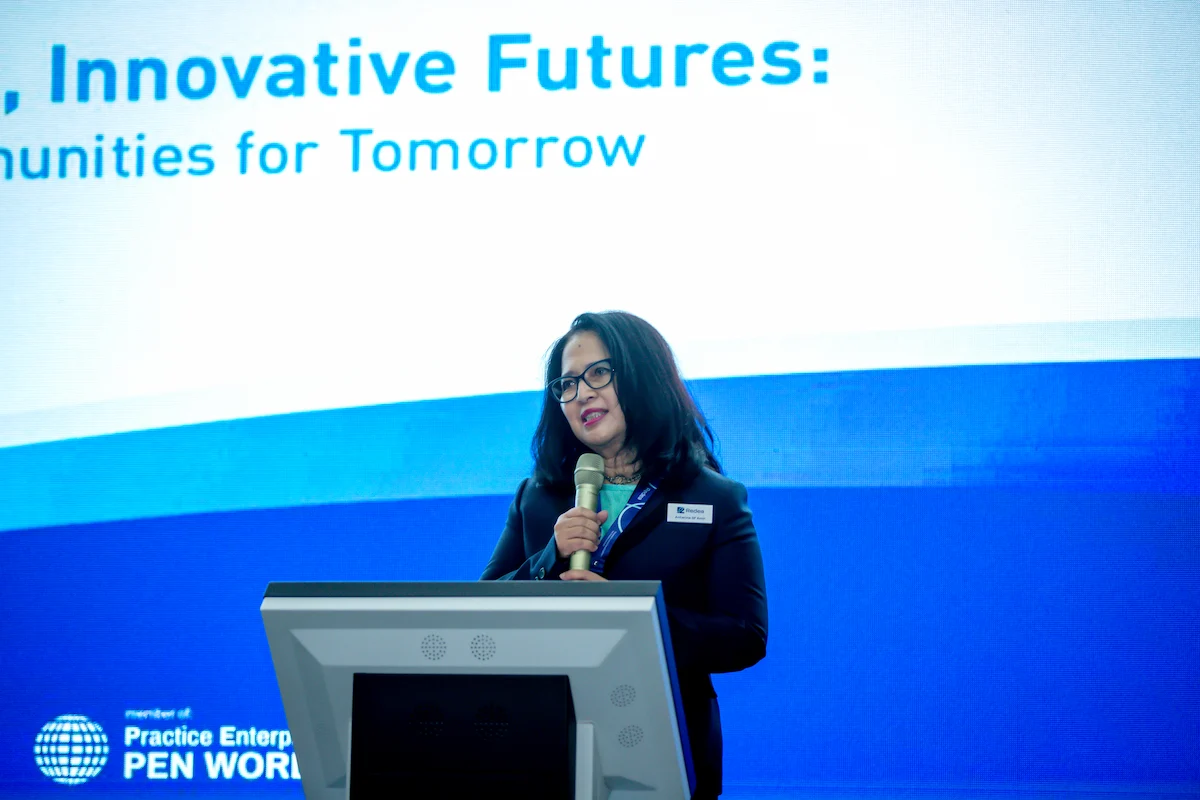Are we confident that schools are equipping our students with
the knowledge and skills they most need for their future?
National Education Day (Hari Pendidikan Nasional) is a momentum for critical reflection on the direction of education in Indonesia where in this era of globalization and digitalization, soft skills, or life skills such as critical thinking, communication, collaboration, creativity, and problem solving, are actually the key for students in facing various future challenges.
In her book, "Life Skills for All Learners: How to Teach, Assess, and Report Education's New Essential" published by ASCD, United States, Antarina SF Amir, granddaughter of Ki Hadjar Dewantara who is also an education expert, said that there are eight important pillars of life skills that need to be formed through the learning process from early childhood education to basic secondary education (Elementary, Middle, and High School).
This book, compiled by Antarina SF Amir, Thomas R. Guskey and the Redea Institute team, discusses eight fundamental life skills, namely: Meta Level Reflection, Expert Thinking, Creativity and Innovation, Adaptability and Agility, Audience Center Communication, Synergistic Collaboration, Empathetic Social Skills, and Ethical Leadership.
"A solid educational foundation must be laid from an early age to high school. This includes developing critical and creative thinking skills, communicating, and collaborating," said Antarina, who was recently invited to speak at international education conferences in Hong Kong and New York (United States) to present her book.
These basic skills, she continued, will be the foundation for students to learn independently, collaborate with others, and understand and process information in various fields of science.
She also said that Gen Z who grew up in the digital era (digital native) are often considered as a generation that is tech-savvy. "However, the lack of Meta Level Reflection and Expert Thinking skills can hinder their true digital literacy," she explained.
“Digital literacy is not just about the ability to use devices and applications, but also about the ability to critically evaluate information, understand the ethical implications of technology, and use technology responsibly and productively, " said Antarina.
If Gen Z does not have strong Meta Level Reflection and Expert Thinking skills, they may become passive consumers of technology, easily influenced by disinformation, and less able to leverage technology for innovation and problem solving.
Antarina emphasized that education should focus on developing skills that are relevant to the needs of today's world. "Life skills are not just about technical abilities, but also include soft skills that are very important in social interactions," she said.
She added, "We need to equip students with skills that enable them to adapt and innovate in the face of changing challenges."

Building Competence and Value-Based Character Education
In addition to skills or competencies, in the context of an increasingly complex and connected world, Antarina SF Amir also highlighted the importance of developing empathetic social skills and ethical leadership .
The ability of social empathy enables individuals to understand and feel the perspectives of others, build positive relationships, and contribute to society constructively.
Meanwhile, ethical leadership equips individuals with the ability to lead with integrity, responsibility, and morality.
"Education must be able to develop individuals who are not only intellectually intelligent, but also have high social and moral sensitivity," she stressed.
This is relevant to global challenges such as disinformation, intolerance and humanitarian crises.
"Character education is about shaping individuals who not only have knowledge, but also have strong values and when we teach character, we are not only shaping individuals, but also building a better society," she said.
Antarina emphasized that character education is not limited to certain subjects, but can be integrated into the entire curriculum and school activities. She gave examples of how strengthening character and values can be done in various ways, including extracurricular activities, collaborative projects, and daily interactions at school.
"For example, during the process of children eating together, the activity includes strengthening character, values, social norms, and environmental awareness," She explained.
Thus, character education becomes a comprehensive part of the learning process without having to be compartmentalized into certain subjects. This approach allows students to internalize these values in real experiences and positive social interactions.

Ki Hajar Dewantara's Philosophy for Building an Excellent Generation
Interestingly, in this book which has received positive responses from within and outside the country, Antarina raises one of Ki Hajar Dewantara's educational philosophies which is profound and relevant to this day, namely Niteni (observing), Nirokke (imitating), and Nambahi (developing).
Antarina SF Amir explains that Ki Hadjar Dewantara's 3N philosophy describes a dynamic and continuous learning process.
Niteni emphasized the importance of careful observation and observation of the surrounding environment. Nirokke showed that imitating or learning from good examples is part of the learning process. And most importantly, Nambahi encouraged not only to imitate, but also to develop, add, and create something new.
"This philosophy emphasizes that education is not just about transferring knowledge, but also developing creativity, innovation, and critical thinking skills," he explained. Students are not only expected to receive information, but also to process it, develop it, and create new knowledge.
She believes that Ki Hajar Dewantara's 3N philosophy is very relevant in a world full of information and rapid change, the ability to observe, learn from examples, and innovate is becoming increasingly important.
On the other hand, Antarina admitted that the journey to achieve ideal education is not easy. However, she sees progress and increasing awareness among education stakeholders.
"The important thing is that the desire and awareness for it are already directed," she said, emphasizing the importance of good intentions and ongoing efforts.




 Juliana Siahaan
Juliana Siahaan
 May 02, 2025
May 02, 2025






